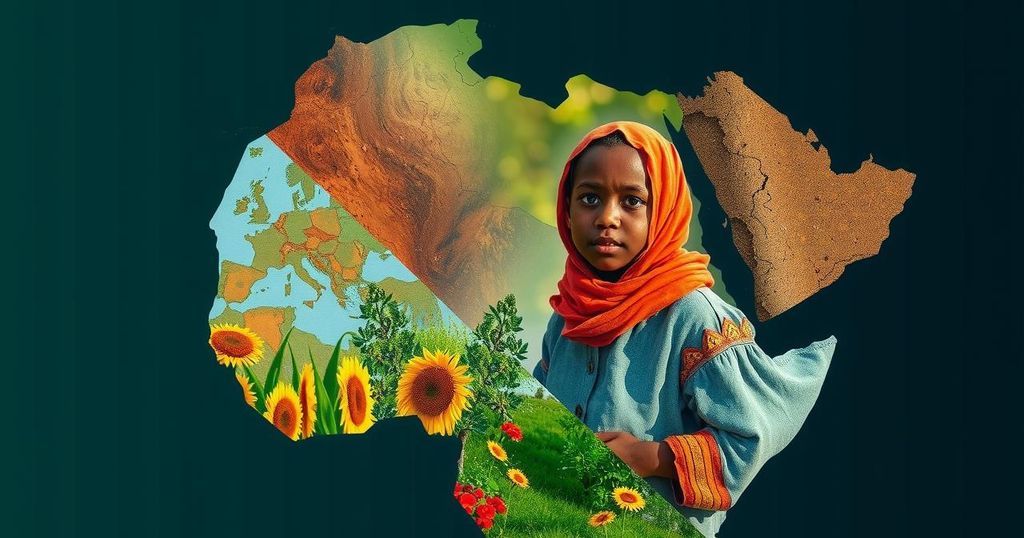A UNICEF report highlights that children in sub-Saharan Africa are at extreme risk due to climate change, yet receive less than 3% of global climate financing. By the 2050s, these children may face intensified climate crises, including extreme weather conditions. Calls for immediate action and child-focused climate policies have been made, stressing the urgent need for educational reforms and enhanced resource allocation.
Children in sub-Saharan Africa are particularly vulnerable to the detrimental effects of climate change, yet they receive inadequate support from climate financing essential for their resilience. The escalating climate hazards impact their access to crucial resources such as shelters, healthcare, clean water, and education, while the digital divide further limits their opportunities. A recent UNICEF report reveals a grim future, predicting that by the 2050s, children in this region will increasingly face extreme weather events. Alarmingly, only a small fraction of global climate funding—less than 3%—is allocated for interventions directly benefiting children. This highlights the urgent need for world leaders to take decisive actions now to safeguard the future of children and avert the reversal of hard-won progress. “The projections in this report demonstrate that the decisions world leaders make, or fail to make today will define the world children will inherit,” emphasized Catherine Russell, UNICEF’s executive director. Furthermore, recent discussions at COP29 have highlighted the disturbing statistic that over 40 million children in Africa and parts of Asia missed school due to extreme heat this year. UNICEF advocates that commitment to child-specific climate strategies is essential, particularly as less than half of national climate plans consider the unique challenges faced by children. Children across seven southern African nations have called for an educational overhaul to meet contemporary needs, signifying their awareness and readiness to engage in climate solutions.
The ongoing climate crisis presents a unique challenge to children in sub-Saharan Africa, who often lack access to necessary infrastructure to mitigate its impacts. The region is particularly susceptible to climate-related hazards such as heat waves and flooding, which threaten basic needs and rights for children, including education and healthcare access. Studies indicate that a significant portion of climate funding fails to address the specific vulnerabilities of the youth in these areas, raising concerns about the long-term prospects for an entire generation. UNICEF has recognized these challenges in its reports and is advocating for enhanced focus on children’s welfare in climate strategies.
In conclusion, the significant threats posed by climate change to the well-being of children in sub-Saharan Africa necessitate an urgent response. Increased recognition and allocation of global climate funding towards children, alongside proactive policy measures, are critical to equip them for the challenges ahead. As articulated by UNICEF, immediate action is required to prevent further erosion of progress for the youth in these regions and to lay foundations for a sustainable future.
Original Source: www.chinadaily.com.cn






